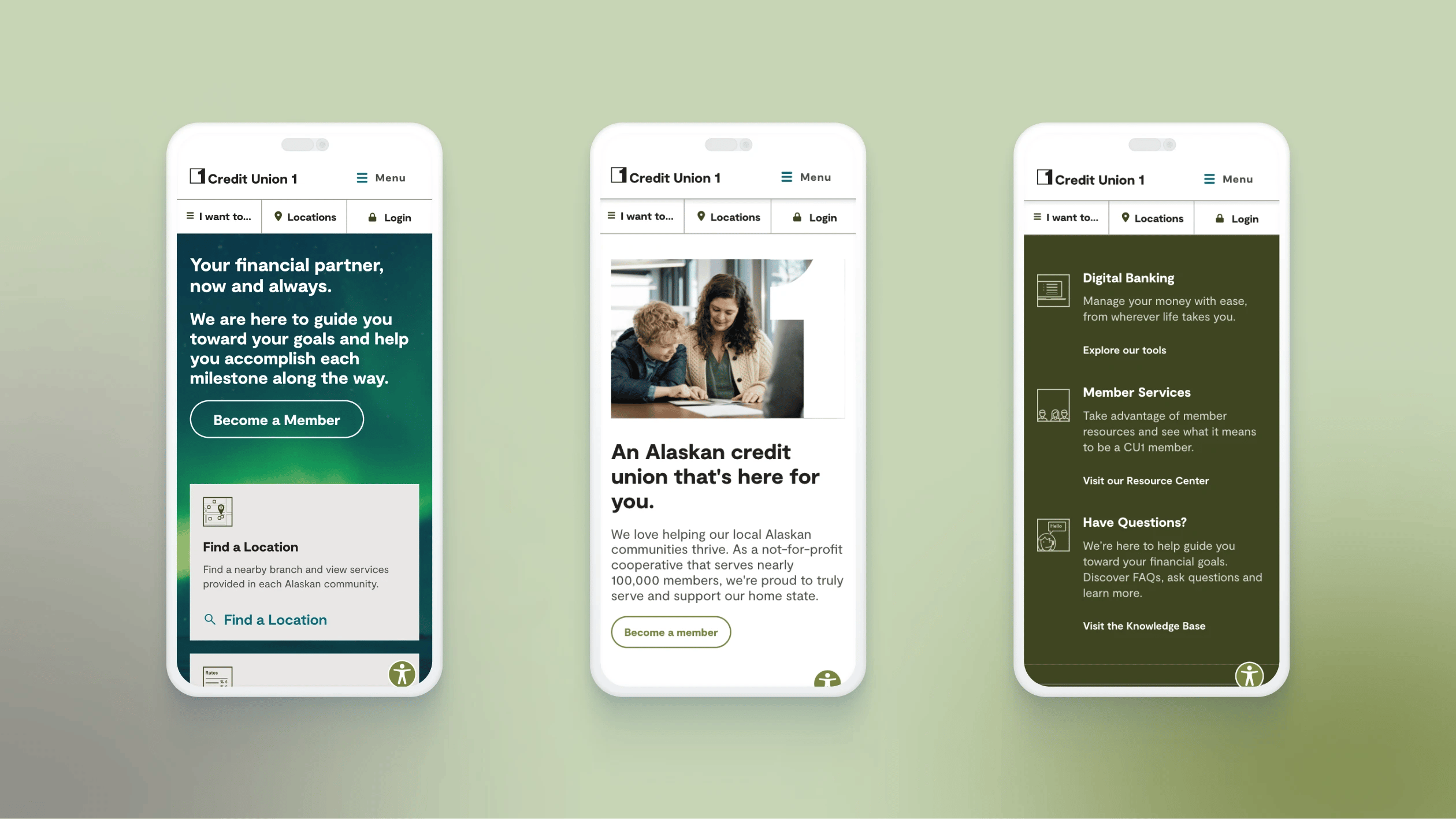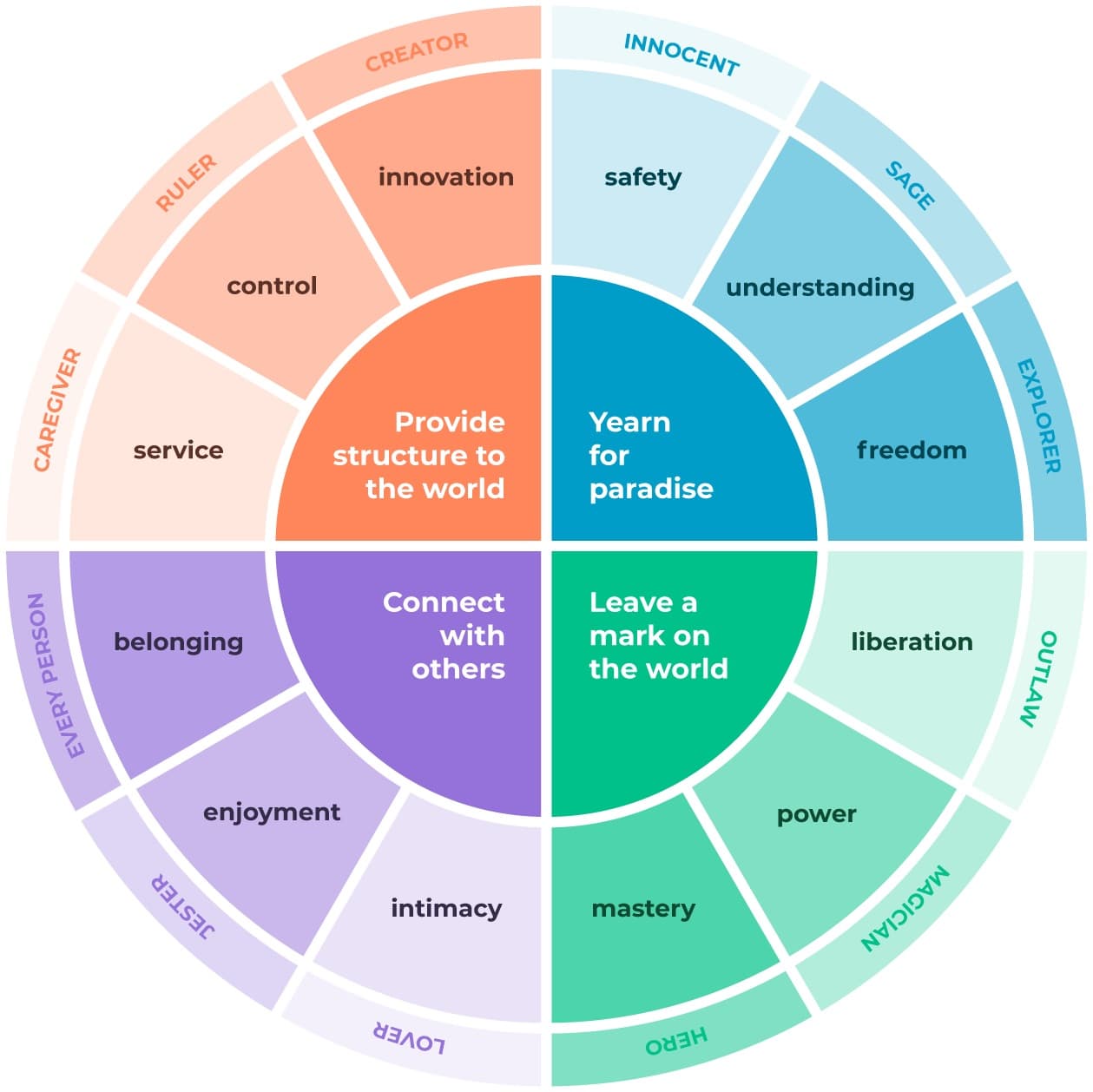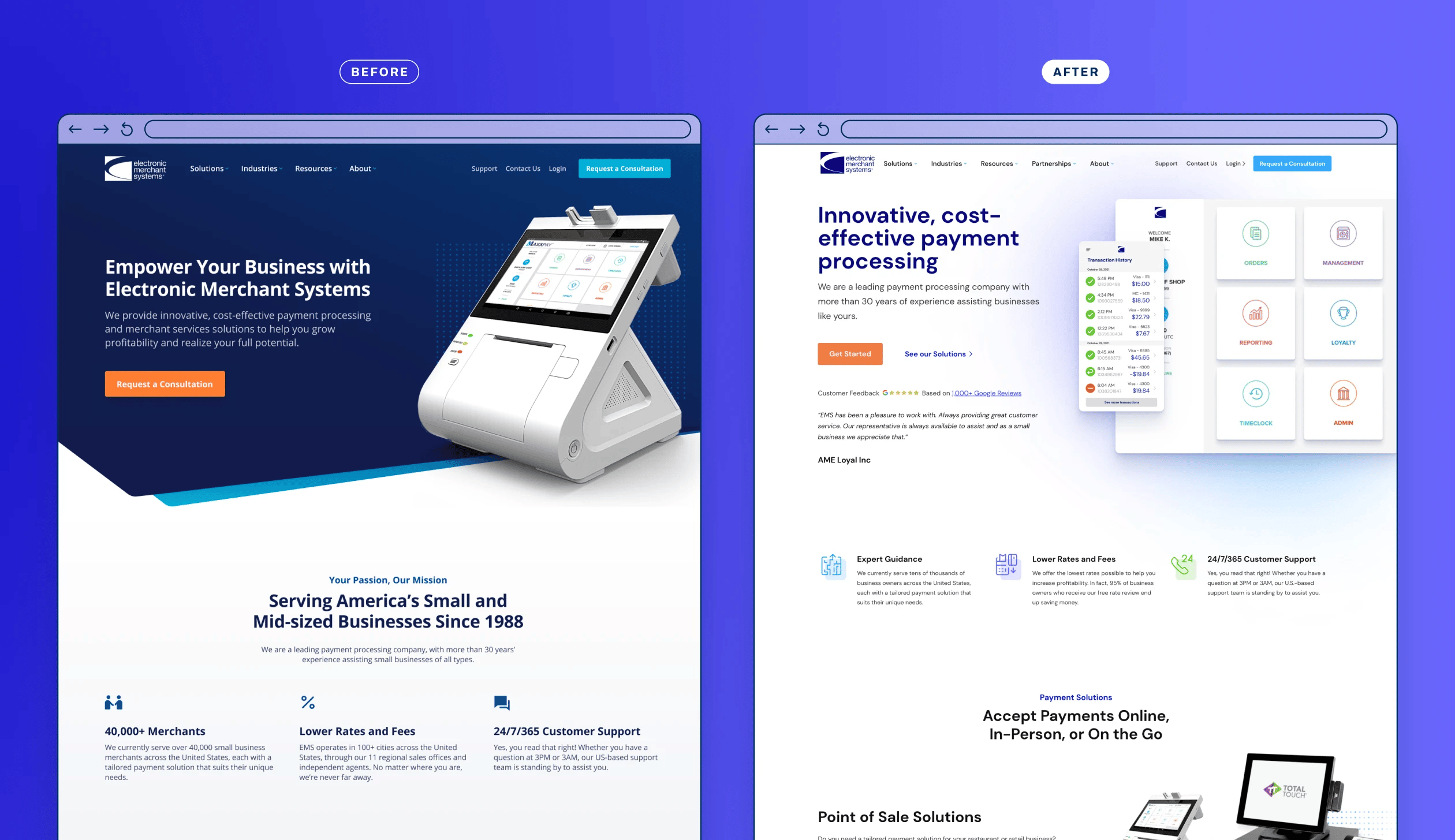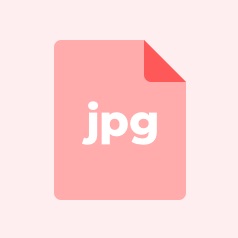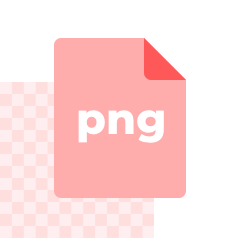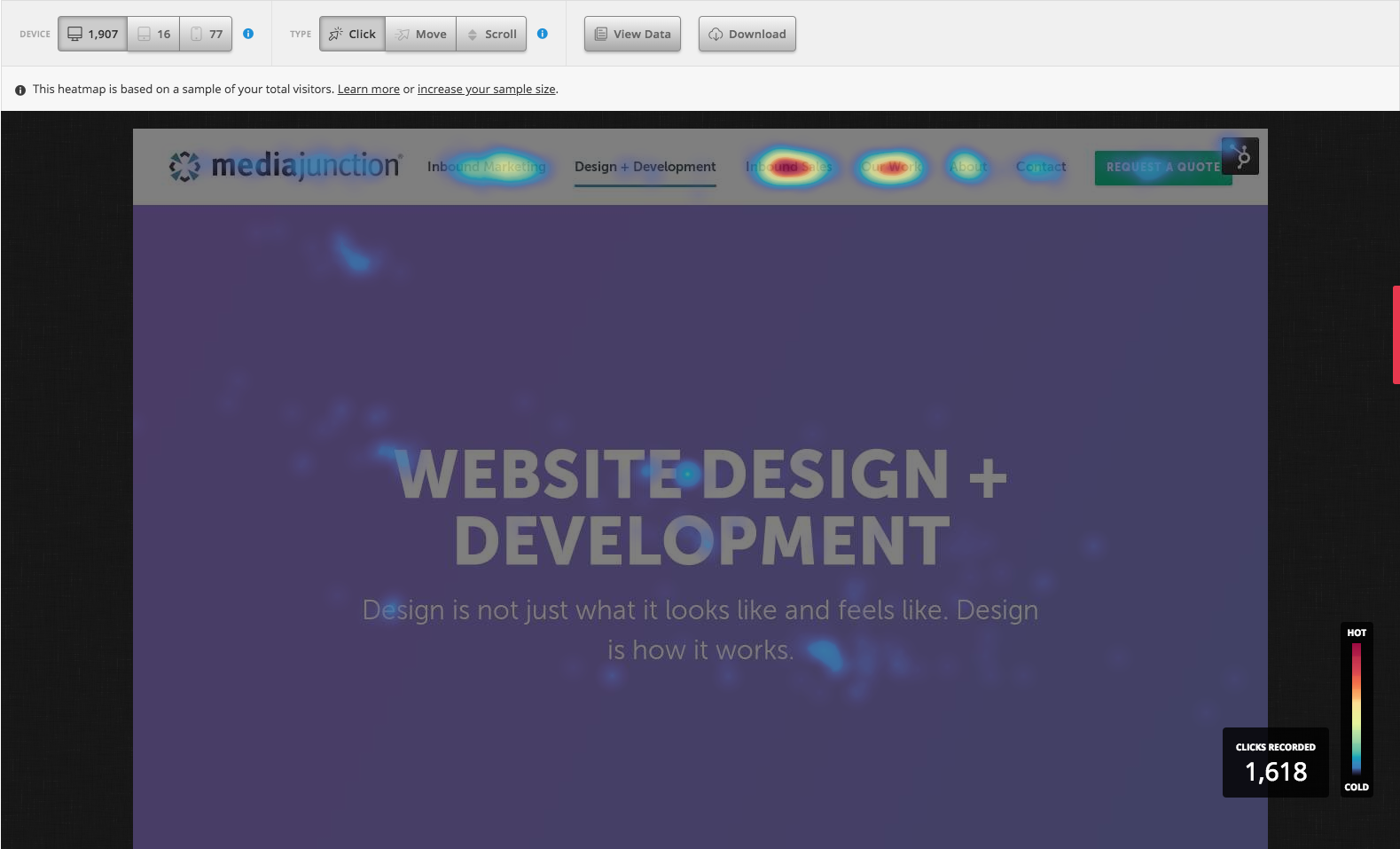hiring an agency vs. designing in-house
There are many benefits to hiring an agency to redesign your website versus doing it in-house. First and foremost, when hiring a professional agency, you’re getting an entire team:

Strategists
Help you understand your goals from both an SEO perspective as well as UX/UI to address design and architecture.

Content Specialists
Writing compelling copy is quite literally their job. They know the language and best practices to produce results.

Designers
Both creative and technically inclined, they understand making websites both functional and aesthetically appealing.

Developers
Experts in their field who will help build your site and present your content in the best light for a great user experience.
-
The experts at an agency have gone through website redesigns many, many times—they’ve refined the process and can help guide you through it for a successful launch. Which isn’t to say you should be hands-off in the process. You know your business best, and your agency partner should leverage your expertise and knowledge of your buyers, industry, and your own internal processes to create the best possible product for your consumers.
Many companies enjoy partnering with agencies for the fresh, outsider’s perspective. When you’re too close to your own brand, it can be difficult to see things from a bird’s eye view. An agency can help you better understand how your business goals line up with your buyers’ journey.
choosing a cms platfrom
There are countless platforms you can use to build and host your website, HubSpot and WordPress being among them. The important thing to consider when choosing which platform to build your website on is what you’re looking to achieve and which platform best suits your needs.
WordPress is open source, and it’s very easy to expand the functionality and build out what you’re looking for without a lot of technical knowledge. You can integrate a number of plugins, and you have easy access to a server-side environment. That being said, all of these extra tools and plugins are written by different developers. So when adding them onto your website, you can run into conflicts—and even worse yet vulnerabilities which put your site at risk.
The beauty of HubSpot is that it’s a proprietary platform, resulting in a more secure environment. Beyond just the website platform, HubSpot has so many other integrated tools and a complete automated marketing solution that works in tandem with the hosting platform. So everything from managing your social media to your email marketing and analytics is at your fingertips, without the conflicting code issues that may come with WordPress plugins.
One of the most noticeable ways the HubSpot and WordPress platforms differ is in the editing process for the user. With WordPress, you edit pages in the admin panel with a number of rich text editors that operate much like a Microsoft Word or Google doc. HubSpot, however, gives users a visual editor, showing you a preview of the page as you’re editing and adding content to a page. Users also have the ability to test the responsive experience of a page and optimize the page for search engines while directly editing the page.
templates vs. flexible layouts
Whether you go with a premade template or a custom, flexible layout will depend on a number of factors, such as what type of business you have, who your target is and what your needs are.
If you are on a tight budget, a premade template might be the way to go in the short term—but you will likely be giving up flexibility to expand or easily change out content areas. Building your website with templates can be an easier option, especially if you’re unfamiliar with the technical side of editing website code. The page is already laid out for you in a complete package—all you have to do is insert your content. But it also comes with a downside: you’ll generally only be able to customize a few things like background color and the logo or header images. And the layout may not be adaptable to changes, so what you see is what you get (WYSIWYG).
Creating a custom website with flexible layouts, on the other hand, can be more costly upfront, but in the long run may end up costing less. Depending on the company you hire it may take a bit longer to design and build your website, but you’ll be able to customize the layout of your pages to create a high-quality presentation and user experience for your website visitors. If you want your website to grow along with your business, you will want to choose a custom web design with flexible functionality.

PRO TIP:
If you do decide to go the template route, you should choose a template from a web design agency rather than choosing a template from your CMS platform’s inventory. That way, you will have people available who can help customize the template as much as possible and be there should any issues arise.
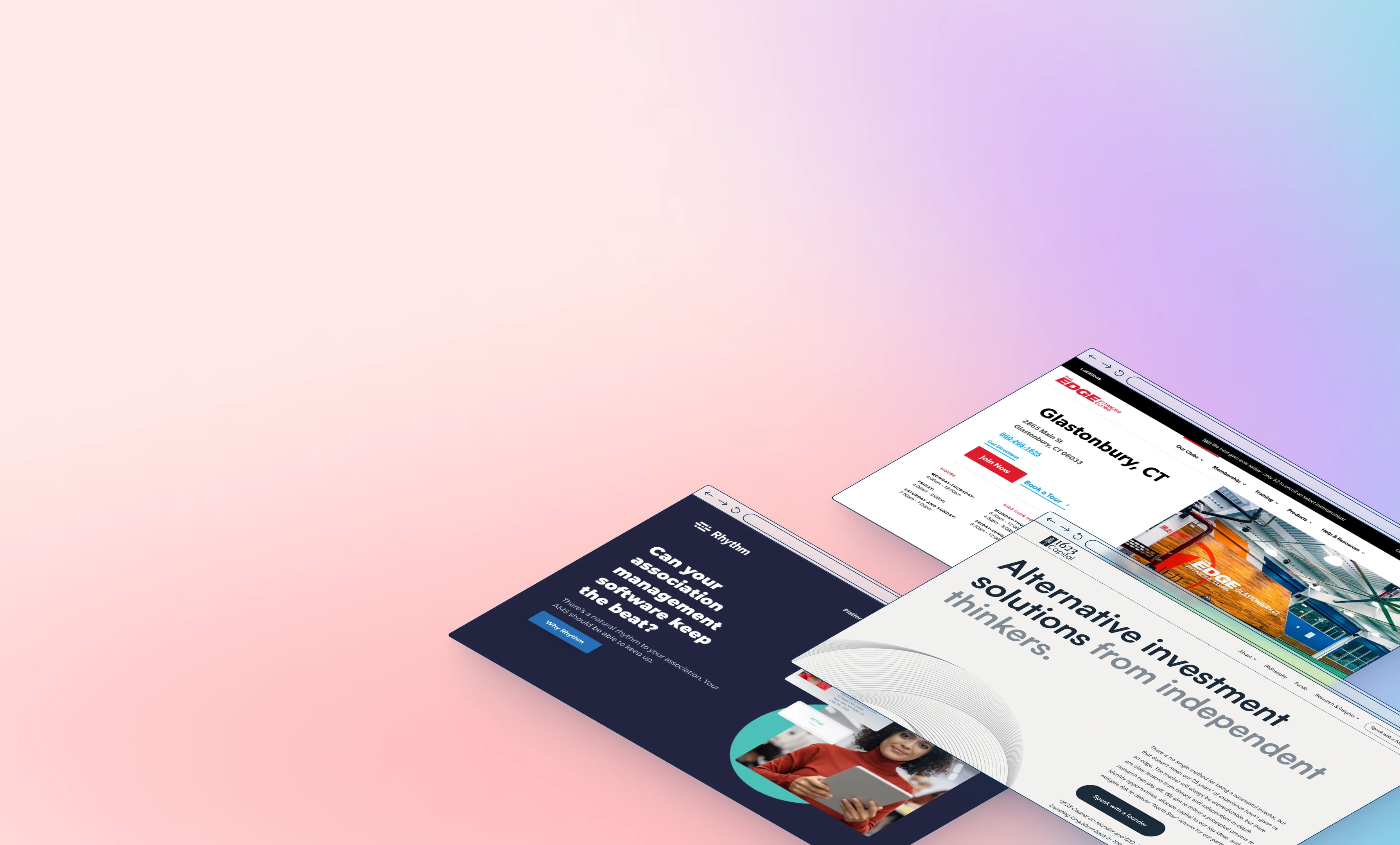
 Ryan VonBergen
VP of Design
Ryan VonBergen
VP of Design
 Kim Wilcox
VP / Business Strategist
Kim Wilcox
VP / Business Strategist
 Trish Lessard
CEO
Trish Lessard
CEO



